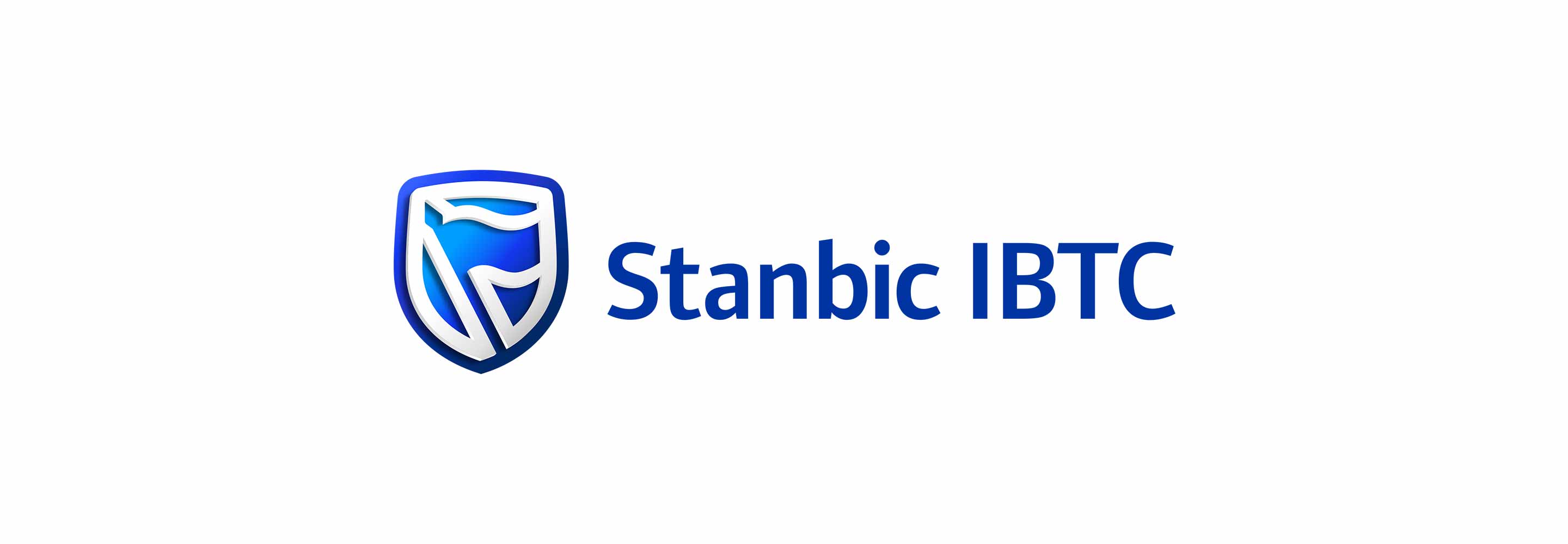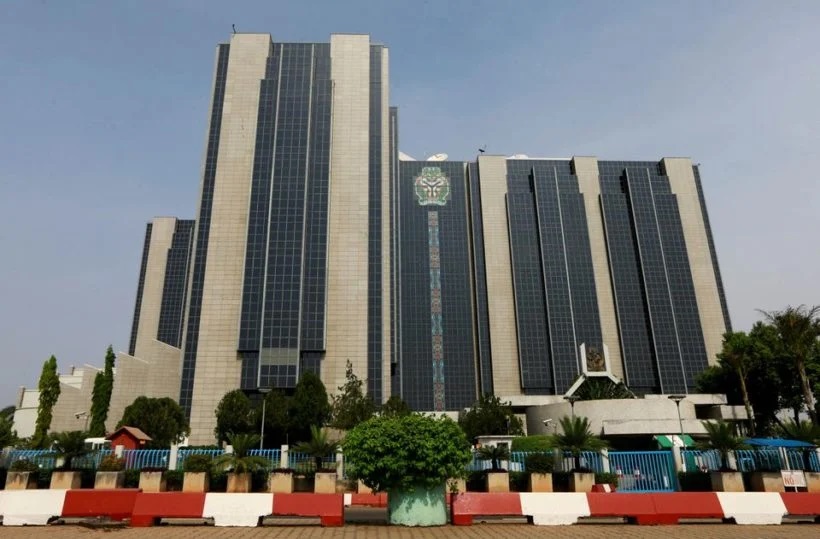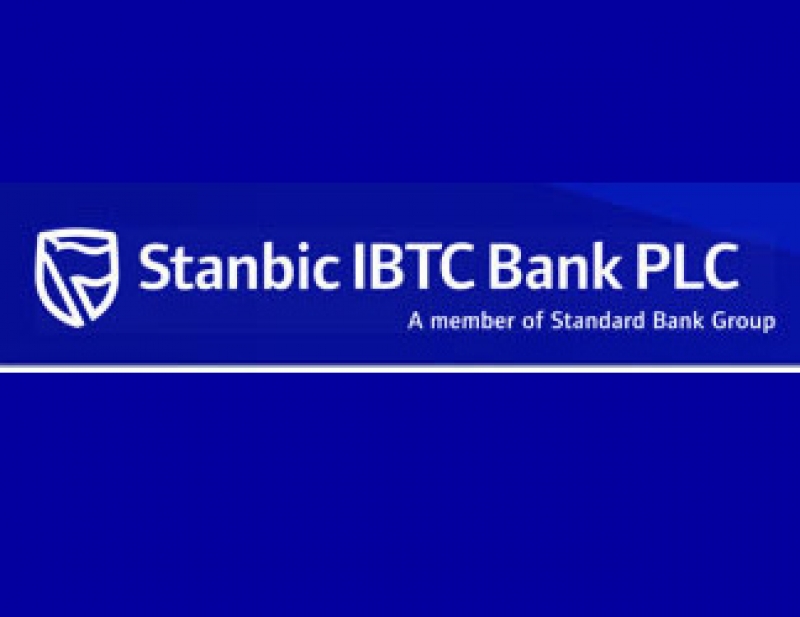Banking
Stanbic IBTC Diversified Business Model Buoys Mid-Year Results

By Dipo Olowookere
Last week, Stanbic IBTC Holdings Plc, a member of the Standard Bank Group, released its financial statements for the half year ended June 30, 2019 and an analysis showed growth in some areas of the business.
During the period under review, the company posted a profit before tax of N44.7 billion, while the profit after tax was N36.2 billion. Other results reflected an increase in non-interest revenue of N54.9 billion and a net-interest income of N39.3 billion.
In addition, there was an increase of 3 percent in the mid-year gross earnings to N117.4 billion, while the total operating income stood at N94 billion.
Furthermore, Stanbic IBTC’s balance sheet showed that the total assets closed at N1.619 trillion, while the gross loans and advances finished at N479.7 billion, representing an increase in 5 percent when compared with last year’s figures.
In the period, the customer deposits stood at N693.5 billion, while the firm recorded an improvement in current-and-savings-accounts deposits mix which went up to 68.9 percent.
In view of the performance of the lender in the first six months of the year, the board announced an interim dividend of N1 per share, the highest paid by a financial institution in H1 2019.
Commenting on the results, the CEO of Stanbic IBTC, Mr Yinka Sanni, attributed the performance of the firm to implementation of the strategies put in place by the management. According to him, the group’s business segments were profitable, despite the challenging business and regulatory environment.
“Our financial results in the first half of 2019 reflected similar trends encountered in the first quarter. The operating environment remained muted, regulatory changes coupled with the highly competitive landscape continued to impact overall returns.
“Still, our diversified business model continues to set us apart. Our business segments remained profitable and resilient although at a slower pace when compared to prior year,” he said.
Mr Sanni disclosed that there has been a return to growth in the second quarter, mainly from the communication and oil and gas sectors. He further added that the gross non-performing loan to total loan ratio which was 3.91 percent, was within acceptable regulatory limits.
Speaking on other areas of the mid-year results in which the group experienced growth, he noted that assets under custody rose to N7 trillion (representing a 42 percent growth) while assets under management grew by 8 percent to N3.5 trillion.
Mr Sanni highlighted three areas through which Stanbic IBTC Holdings achieve growth targets as: EZ cash loan/advance, a recently launched instant credit solution; enhanced migration of customers to digital platforms and the launch of RetireWell Individual Retirement Savings Account, a retirement savings account targeted at self-employed individuals.
He shed more light on those initiatives, saying, “To further drive credit growth, in the retail space, we launched an instant credit solution named EZ cash loan/advance, which gives access to loans in less than a minute to pre-approved customers. This, among other initiatives, will enable us achieve the targeted loan growth for the year.
“The disciplined execution of our digital strategy has seen customers increasingly adopting and transacting on our digital platforms. The number of transactions performed by customers on our digital channels was up 26 percent between H1 2019 and H1 2018. This translated into a year-on-year growth of 71 percent in electronic banking fees.
“Moreover, we instituted a digital academy targeted at equipping staff with digital skills at various levels while also driving collaboration with Fintech players to position us for early adoption of innovative solutions.
“Following the launch of the micro pension initiative by the government earlier in the year, we deployed the RetireWell Individual Retirement Savings Account. We have put in place strong agency network in key locations to drive growth in this area and we have made good progress in this regard,” he stated.
Banking
We Now Pay Depositors of Failed Bank Within Days—NDIC

By Adedapo Adesanya
The Nigeria Deposit Insurance Corporation (NDIC) says depositors of failed banks in Nigeria can now access their insured funds within days.
The corporation said the development is a part of ongoing reforms aimed at strengthening confidence in the country’s financial system.
The chief executive of NDIC, Mr Thompson Sunday, disclosed this on Thursday at the NDIC Special Day of the 47th Kaduna International Trade Fair, noting that recent interventions had significantly improved the speed and efficiency of depositor compensation.
Represented by Mrs Regina Dimlong, the Assistant Director of Communications and Public Affairs, Mr Sunday said the corporation had successfully deployed the Bank Verification Number (BVN) system to facilitate prompt payments to customers of recently failed banks, including Heritage Bank Limited, Union Homes Plc and Aso Savings and Loans Plc.
“Depositors were paid within days of closure without the need to fill physical forms or visit NDIC offices.
“This is a part of our reform efforts to make depositor protection faster, simpler and more transparent,” he said.
According to him, the reforms were designed to restore public confidence in the banking system and prevent panic withdrawals, especially during periods of financial stress.
Mr Sunday explained that NDIC’s mandate spans deposit insurance, bank supervision, distress resolution and liquidation of failed banks, adding that the Corporation works closely with the Central Bank of Nigeria (CBN) to ensure early detection of risks in insured institutions.
He disclosed that in 2024, NDIC reviewed its deposit insurance framework, increasing coverage for depositors of Deposit Money Banks, Mobile Money Operators and Non-Interest Banks to N5 million, while customers of Microfinance Banks, Primary Mortgage Banks and Payment Service Banks are now covered up to N2 million.
He noted that the revised thresholds now guarantee full protection for about 99 per cent of depositors nationwide, particularly small savers and low-income earners.
The NDIC boss urged Nigerians to ensure their BVNs are properly linked to their bank accounts, stressing that this had become the primary channel for accessing insured deposits in the event of bank failure.
Banking
Nigeria Gets Permanent Seat on African Central Bank Board

By Adedapo Adesanya
Nigeria has secured a major strategic gain at the ongoing 39th African Union Summit, after securing a permanent seat on the board of the African Central Bank.
The Minister of Foreign Affairs, Mr Yusuf Tuggar, confirmed this at the summit on Friday, highlighting it as a significant milestone for both Nigeria and the West African region.
The African Central Bank (ACB) is one of the original five financial institutions and specialised agencies of the African Union (AU).
“Importantly, Nigeria has been given the hosting of the African Monetary Institute and the African Central Bank. Not only that, in today’s plenary, Nigeria was confirmed a seat on the board of the African Central Bank. This is huge,” he said.
He stated that the development represents a diplomatic breakthrough, mentioning that the move faced initial opposition from some member states.
“It is something that was initially resisted by some countries, so now we have a permanent seat on the African Central Bank board. It’s a major success,” he added.
This year’s summit carries the theme Assuring Sustainable Water Availability and Safe Sanitation Systems to Achieve the Goals of Agenda 2063, the sessions will focus on advancing continental commitments to sustainable water management and improved sanitation, critical pillars for health, agricultural productivity, and the broader development aspirations of the AU’s Agenda 2063 framework.
Beyond financial governance, Nigeria and the West African bloc also recorded progress in elections to the Peace and Security Council, the African Union’s highest decision-making body on conflict and security matters.
The delegation announced that “Côte d’Ivoire, Sierra Leone, and the Republic of Benin have been elected,” with Benin securing a fresh term while the other two countries were re-elected.
The Peace and Security Council also convened to deliberate on the situations in Sudan and Somalia. Nigeria voiced strong reservations over Sudan’s potential readmission into the continental body.
“Nigeria voiced its reservations about Sudan being readmitted because, as you know, there are two warring factions in Sudan,” Tuggar stated.
“We reminded the Peace and Security Council that we have to abide by the rules and regulations of the African Union. If there has been an unconstitutional change of government, then the country should not be allowed to participate, and that was carried.”
The summit also outlined its 2026 theme: water sustainability. The Nigerian representative underscored the country’s strategic and demographic significance in advancing that agenda.
“Nigeria was created out of the confluence of the River Niger and the River Benue. So water is very important,” he said.
“We are the largest country in Africa, with a population of 230 million people. We’re going to be 400 million in the next 24 years. So water is a source of life. It’s very important, and we’re playing a very pivotal role in implementing the programs that are being set for the theme of the year.”
Banking
Standard Bank Hosts 2nd African Markets Conference

By Modupe Gbadeyanka
The second African Markets Conference (AMC) will take place in Cape Town, South Africa, from Sunday, February to Tuesday, February 24, 2026.
The event, hosted by Standard Bank, will bring together global institutional investors, sovereign wealth funds, and African policymakers to catalyse the flow of capital into the continent’s most critical sectors.
The theme for this year’s edition is Mobilising Global Capital at Scale for Africa’s Growth and Development.
AMC 2026 will host a high-level delegation of decision-makers, ensuring that the dialogue leads to tangible commitments.
The conference will be structured around five high-impact pillars designed to move the needle on investment, including prioritising infrastructure as an asset class, accelerating the energy transition, deepening African capital markets and mobilising private capital, enabling intra-African trade and flows of capital, and addressing Africa’s sovereign debt and cost sustainability.
It is estimated that by 2050, Africa will add one billion people, more than half in cities, yet it invests only $75 billion of the $150 billion it needs annually for infrastructure. Standard Bank aims to use AMC 2026 to ensure that African priorities remain at the centre of the global financial discourse.
“This year’s engagement bridges the gap between policy ambitions and market realities. Africa urgently needs practical measures to deepen capital pools, improve market liquidity, and strengthen regulatory frameworks that give investors the confidence to deploy capital at scale.
“Mobilising capital is not just about funding projects; it is about building the foundation of a more balanced and inclusive global economy,” the chief executive of Corporate and Investment Banking at Standard Bank Group, Luvuyo Masinda, stated.
-

 Feature/OPED6 years ago
Feature/OPED6 years agoDavos was Different this year
-
Travel/Tourism10 years ago
Lagos Seals Western Lodge Hotel In Ikorodu
-

 Showbiz3 years ago
Showbiz3 years agoEstranged Lover Releases Videos of Empress Njamah Bathing
-

 Banking8 years ago
Banking8 years agoSort Codes of GTBank Branches in Nigeria
-

 Economy3 years ago
Economy3 years agoSubsidy Removal: CNG at N130 Per Litre Cheaper Than Petrol—IPMAN
-

 Banking3 years ago
Banking3 years agoSort Codes of UBA Branches in Nigeria
-

 Banking3 years ago
Banking3 years agoFirst Bank Announces Planned Downtime
-

 Sports3 years ago
Sports3 years agoHighest Paid Nigerian Footballer – How Much Do Nigerian Footballers Earn












